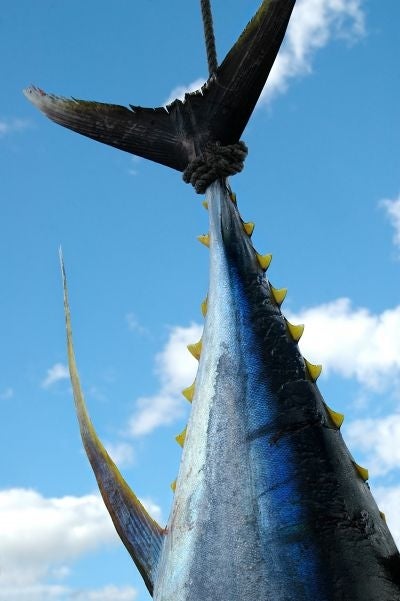Your support helps us to tell the story
From reproductive rights to climate change to Big Tech, The Independent is on the ground when the story is developing. Whether it's investigating the financials of Elon Musk's pro-Trump PAC or producing our latest documentary, 'The A Word', which shines a light on the American women fighting for reproductive rights, we know how important it is to parse out the facts from the messaging.
At such a critical moment in US history, we need reporters on the ground. Your donation allows us to keep sending journalists to speak to both sides of the story.
The Independent is trusted by Americans across the entire political spectrum. And unlike many other quality news outlets, we choose not to lock Americans out of our reporting and analysis with paywalls. We believe quality journalism should be available to everyone, paid for by those who can afford it.
Your support makes all the difference.Greenpeace and WWF on Wednesday said a fragile agreement to police the Mediterranean's precious stocks of bluefin tuna could be wrecked by "illegal" fishing by Libyan-flagged trawlers.
Tripoli has allowed fishing in its waters for the upcoming trawling season, even though its plans have not been approved by an international organisation that monitors tuna catches in the Mediterranean, they said.
"Illegal Libyan vessels are now ready to set sail for the Libyan fishing zone from European ports in France, at Sete, and Malta," the two groups charged in a joint press release.
Industrial trawling of Mediterranean tuna, prized in sushi, unfolds during a specific season, running from May 15 to June 15.
Quotas are allotted under a 48-nation agreement under the Madrid-based International Commission for the Conservation of Atlantic Tunas (ICCAT), which covers the eastern Atlantic as well as the Mediterranean.
After a fierce 10-day debate last November, ICATT members set an overall catch level for 2011 of 12,900 tonnes, barely unchanged from 13,500 tonnes in 2010. Libya's share this year is 902 tonnes.
WWF and Greenpeace called on ICCAT members to suspend the Libyan fishery to protect an imperfect but hard-won recovery plan.
"Painstaking and fragile achievements of the last years are endangered by the maverick attitude of a small minority," said Sergi Tudela of WWF Mediterranean.
"Responsible members of ICCAT must rally to do what is necessary to save this species and fishery."
Last Friday, the French agriculture ministry said the 10 Libyan-flagged tuna ships based at Sete would not be authorised to catch bluefin tuna as long as ICCAT had not approved Libya's plans.
Environmentalists and several ICCAT nations campaigned at last November's meeting in Paris for far deeper cuts, or even a moratorium, to help the species to recover from decades of over-fishing.
Defenders of the deal said stocks should gradually reach sustainability by 2022. Scientists, though, are cautious, saying that information about bluefin reproduction and recovery is sketchy.
Japan is the world's top consumer of bluefin, buying up more than 80 percent of all fish taken from the Mediterranean and eastern Atlantic.

Join our commenting forum
Join thought-provoking conversations, follow other Independent readers and see their replies
Comments